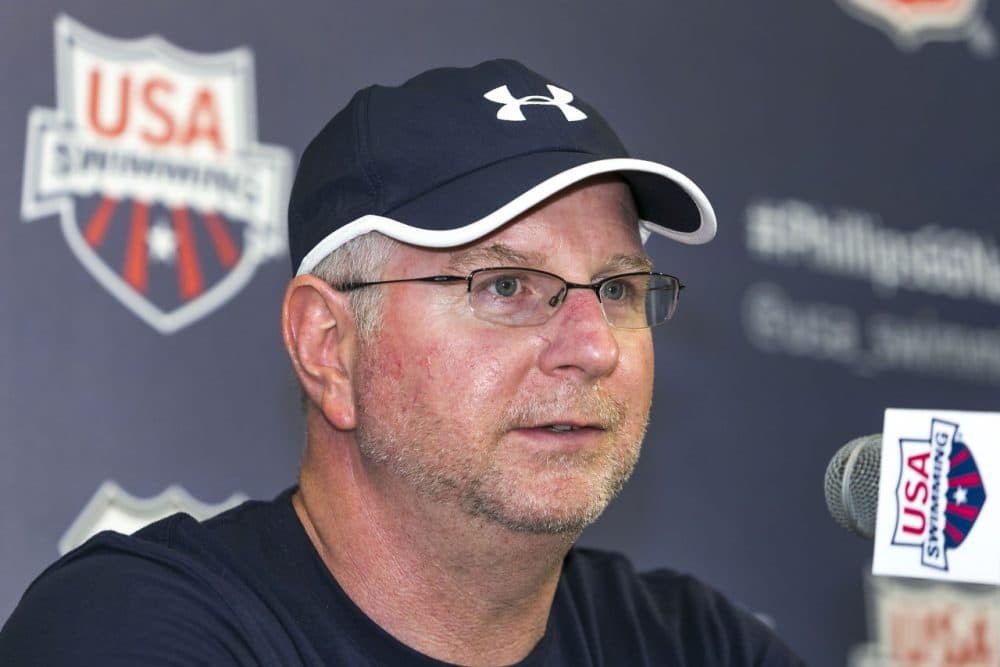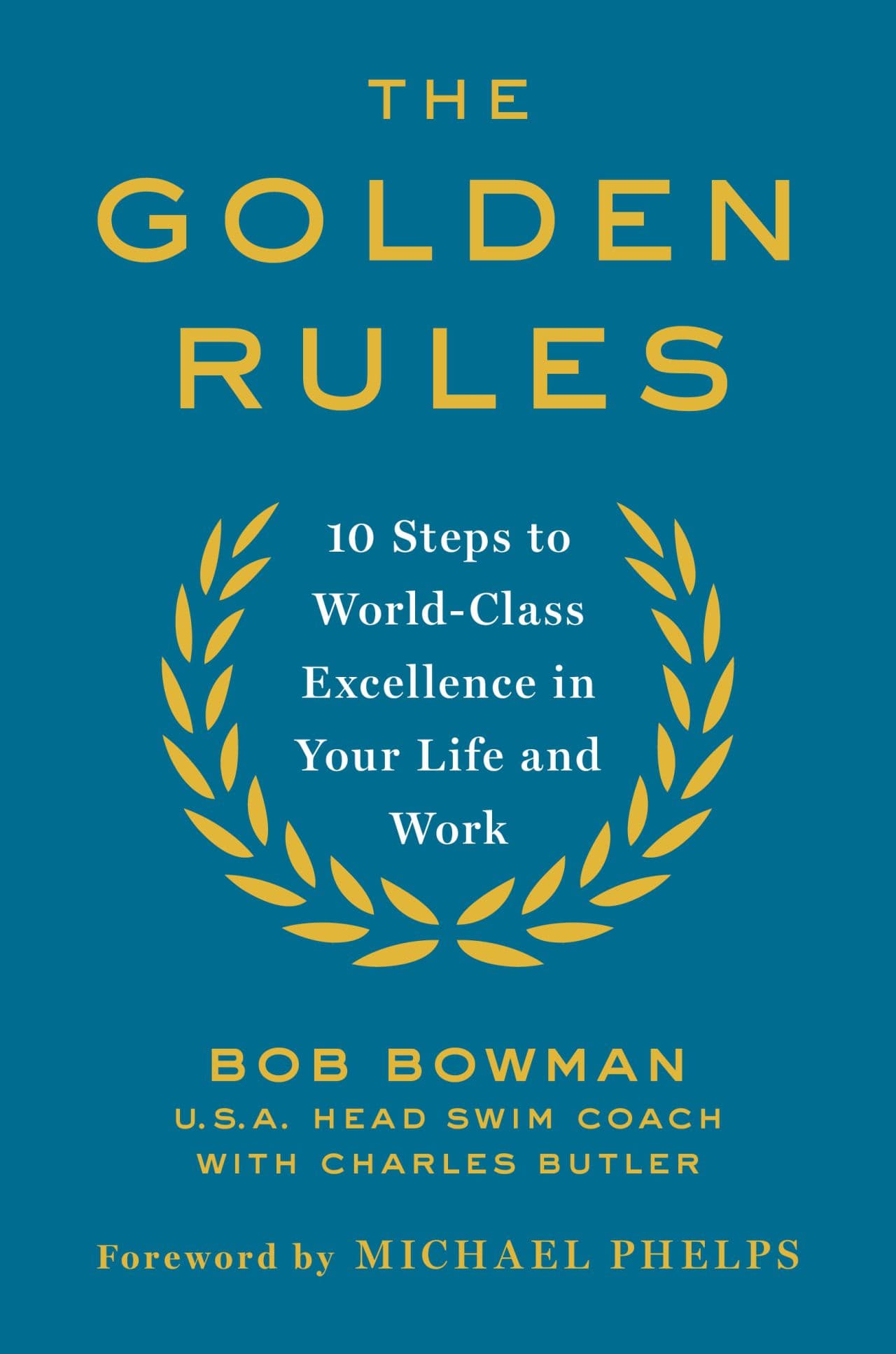Advertisement
Michael Phelps’ Coach On How To Set Goals – And Achieve Them

 The Olympics are still a few months away, but many American athletes are already gearing up, including the most decorated swimmer of all time, Michael Phelps.
The Olympics are still a few months away, but many American athletes are already gearing up, including the most decorated swimmer of all time, Michael Phelps.Here & Now's Jeremy Hobson speaks with Bob Bowman, Phelps’ long-time coach, U.S. men's swimming coach for the Rio Olympics, and author of the new book “The Golden Rules: 10 Steps to World-Class Excellence in Your Life and Work.”
Interview Highlights: Bob Bowman
On his nickname, ‘the mad scientist’:
“Well, I’m always looking for a way to, you know, help people go faster. In Michael’s case, as he stayed in the sport longer and longer I had to be more and more creative to find ways to keep pushing him to new levels of performance, so I think that’s where that came from.”
How did you push Michael Phelps to improve his performance?
“We looked for technical ways in which we could improve his swimming. Michael’s famous for doing the underwater kicking in swimming, and that was one of the things that we really developed that I think now most people do as a standard part of their repertoire. We’ve used technology, like right now we are using sleep monitors and a lot of stuff like that that’s recently come out. So we’re always looking for that little edge.”
What do you do to change someone’s mindset to make them perform better?
“Well, the first thing you have to do is have a vision for where you want to go, and that implies knowing exactly where you are. I think one of the hallmarks of my relationship with Michael is that we’ve always been 100 percent honest about where we think we are in a given day, what we can do to improve, and then we can look down the line and say here is where we want to be and what’s the difference between those two points.”
How did you learn what you are now teaching others?
“Well, I’ve been doing this for 30 years, so you have a lot of time to make mistakes. Someone said, I think it was Niels Bohr said, ‘an expert is someone who’s made every possible mistake in his field of study,’ and I think I’m there. So you have a lot of train and error learning, but I think there are so many similarities to athletic preparation for performance and musical preparation for performance, and it all deals with goal setting and being able to come up with a vision of where you want to go, set up your plan to get there, and then most importantly follow through with that plan and be able to adjust as things maybe go off the rails a little bit, which they always do.”
What is the difference between the skills you need to coach an individual and coach, let’s say, a basketball team?
“Well, I think the comparison to basketball is, the basketball coach needs to know each of the individuals’ learning styles, the way they communicate best, and then he needs to tie that to the group vision. When it’s me and Michael in the pool, I have to know the things that motivate him, that don’t motivate him, I have to read the individual signs, and I think what you get is a much more close relationship and we know virtually everything about each other after 20 years, it’s almost like a marriage, so we can push each other’s buttons at any time. That can be very helpful, it could also kind of mess things up sometimes.”
Are we asking too much of athletes?
“I don’t think we’re asking too much, because what we’re asking them to do is really necessary for their development, I think, to get to performances that they want. But I do think each individual has to make a decision about how they want to go about it. I don’t feel like we’re asking too much of people who want to perform in the top one half of one percent.”
Are you concerned about the Zika virus at the upcoming Olympics?
“I am. I think the greatest thing that bothers people is the unknowns, like we really don’t know what the long term effects of Zika are. I think in general, the short term effects of the symptoms themselves may not be as severe as some of the other forms of even flu that we have here, but the thing we really have to consider are its effects on pregnant women or women who want to have children and what that might do for them in the long term. I think the unknowns are the most concerning part.”
What is next for you once Phelps finishes his career?
“I love coaching, and I’ve just taken a job this past year at Arizona State University and we are building a world-class program there. I’m loving living in Arizona, so is Michael, he and Nicole have just purchased a home there and plan to stay. He’s actually going to help coach with me a little bit, so that’s my next challenge, to really sink my teeth into the collegiate program and try to help that develop.”
Guest
- Bob Bowman, Head Men’s Swimming Coach for the 2016 U.S. Olympic TeamAuthor of “The Golden Rules: 10 Steps to World-Class Excellence in Your Life and Work." He tweets @coach_bowman.
This segment aired on May 19, 2016.